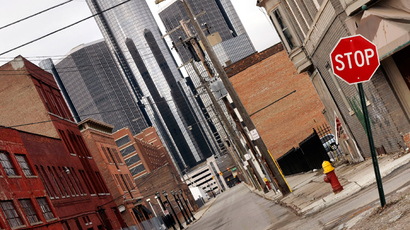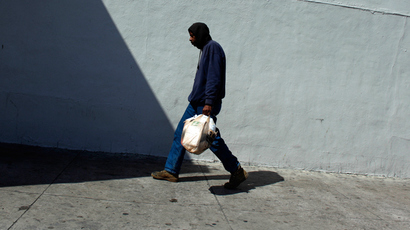Racial discrimination worries raised by FBI screening

Outdated and incomplete background check results have cost thousands of people a chance at employment and are leading to flawed dismissals as US employers increase their reliance on FBI screening methods when doing their homework on potential workers.
Consumer groups say that there is a high potential for racial discrimination because most FBI records only list an arrest, not the outcome of that case, according to the Washington Post. A lawsuit on behalf of minorities against the Commerce Department claims that Latinos and African Americans are denied employment in greater numbers because of the incomplete reports.
A Bureau spokesman told the Post that the FBI relies on state records to supply the checks; a practice they say “decentralizes the criminal history responsibility by making the states, rather than the FBI, primarily responsible for record maintenance and dissemination.”
The revelations come as the number of background check requests has multiplied by six over the past ten years. Entire industries require all prospective employees to undergo FBI screening, including, since 2011, port workers, truck drivers, mortgage processors, and others.
“Although considered the gold standard of criminal background checks, the FBI records routinely fail to report important information on the outcome of arrests, information that is often beneficial to workers subject to these reports,” wrote Madeline Neighly of the National Employment Law Project, which released a report Tuesday. “Given the massive proliferation of FBI background checks for employment – roughly 17 million were conducted last year – these inaccuracies have a devastating impact on workers, especially workers of color who are disproportionately impacted by the criminal justice system.”
Neighly and her co-author, Maurice Emsellem, go on to call on the FBI to simply ensure that an individual’s record is complete before it is released. NELP also estimated that 600,000 reports released by the FBI over the past ten years were inaccurate in some way.
Making matters worse, state records are often just as disorganized. Twenty-seven states reported a backlog of records, according to a 2010 Justice Department report quoted by the Post, while almost half of the 50 states found that two out of every five records were missing final outcomes.
The discrepancy coincides with an announcement from the American Civil Liberties Union that it plans to fight by against racial bias partly facilitated by FBI technologies.
“The Federal Bureau of Investigation is collecting racial and ethnic information and ‘mapping’ American communities around the country based on crude stereotypes about which groups commit different types of crimes,” the ACLU wrote on its website. “Nationwide, the FBI is gathering reports on innocent Americans’ so-called ‘suspicious activities’ and sharing it with unknown numbers of federal, state and local government agencies.”
The federal government received approximately 4 million applications for Census worker positions in 2010. Roughly one million of that sum was put on hold because of FBI background checks, at which point those applicants, who were not told what information about them was flagged, needed to prove to within 30 days that the FBI the background check was incorrect in order to remain in consideration.
Among those who turned up in the FBI’s database, according to the Post, 41 per cent were black and another 20 per cent were Hispanic. Those numbers, if approved for a class-action suit, would encompass approximately 850,000 people to form the largest discrimination suit in history.
“It was a dramatic screen of basically anybody with any interaction with the criminal justice system,” said lawyer Adam Klein, whose firm is handling the case. “It included the craziest things.”














